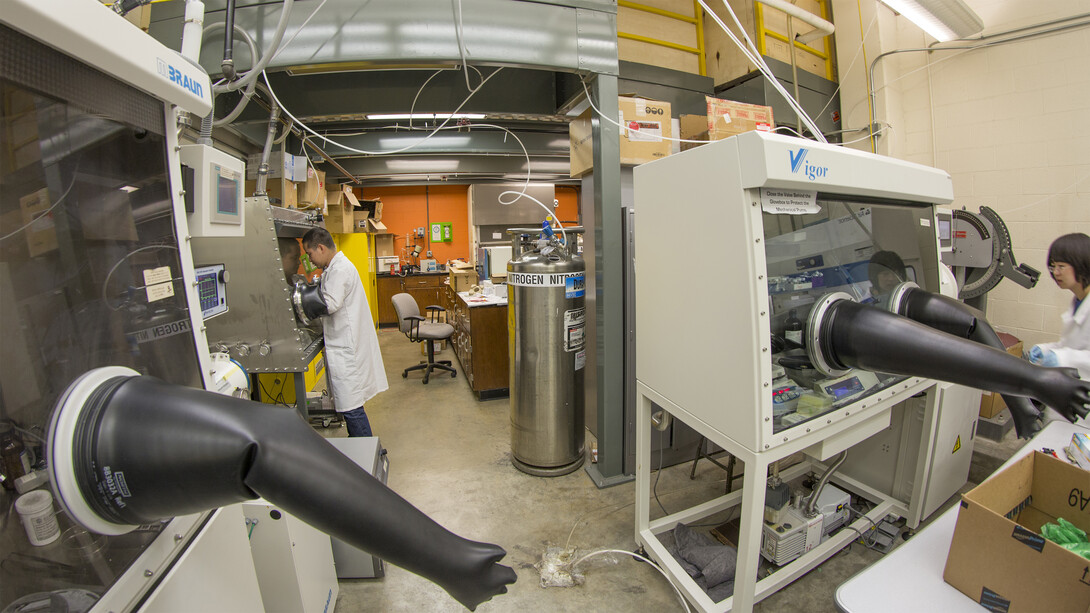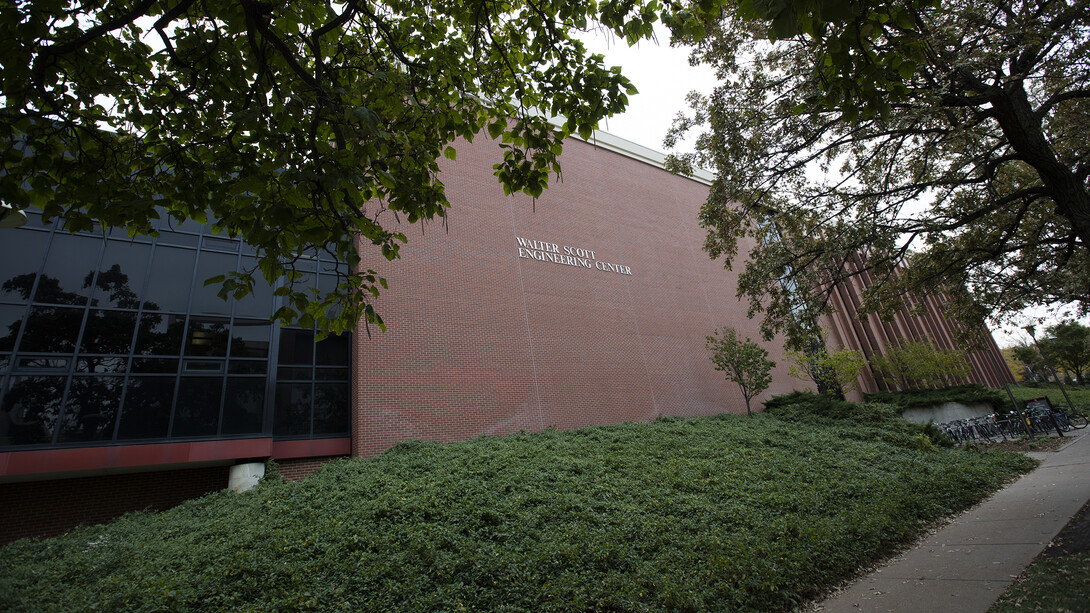
The University of Nebraska is moving forward with updates to two College of Engineering buildings.
Approved by the NU Board of Regents on Aug. 3, the $75 million project will create and update spaces in the Scott Engineering Center and the Link, a 34-year-old structure that connects the Scott building to Nebraska Hall. When complete, the updated facilities on the University of Nebraska–Lincoln’s City Campus will benefit students, faculty and research.
The plan includes renovation of the Scott Engineering Center and demolition and rebuilding of the Link. The work is necessary as the buildings are antiquated, expensive to maintain and do not meet the needs of a growing College of Engineering.
“This project is the beginning of a transformational change for our students, faculty and staff and for Nebraska engineering industry,” said Lance C. Pérez, dean of the College of Engineering. “The upgraded facilities will enable the college to better accomplish our missions in education, research and outreach, as well as accommodate growth in undergraduate and graduate student enrollment and faculty research.”

Over the last decade, the college has experienced consistent growth in its student enrollments. In fall 2017, the college had 3,117 undergraduates and 650 graduate students.
The three-year project is projected to begin in June 2019 with the demolition and replacement of the Link. Construction costs are estimated at $75,465,000, with $70 million in funding provided through bond proceeds and $5.456 million in private donations.
Bond proceeds from LB 957, which was approved by the Nebraska Legislature and governor in 2016, are being used to finance a number of renovation projects across the university, including the engineering upgrade. The bonds ($200 million in total) will be repaid over a 12-year period, with annual payments of $11 million in state funding plus $11 million from the NU system.
The 25,307-gross-square-foot Link houses offices for civil engineering and electrical and computer engineering, as well as classrooms and meeting spaces.
A new and expanded Link will be rebuilt on the same location with approximately 87,000 gross square feet of space that will primarily house research labs.

The second component of the project — major renovations to Scott Engineering Center — is scheduled to begin in early 2021.
Completed in 1971, the 177,000-gross-square-foot, four-story structure includes laboratories, research centers, classrooms, graduate student spaces and the machine shop for the College of Engineering. Though the building is structurally sound, all building systems are nearing their lifespans. The interior must also be reconfigured to support modern teaching and research, Pérez said.
The renovations — expected to be completed by the fall of 2022 — will allow Scott Engineering Center to house laboratories for undergraduates and faculty research, department offices and classrooms.







